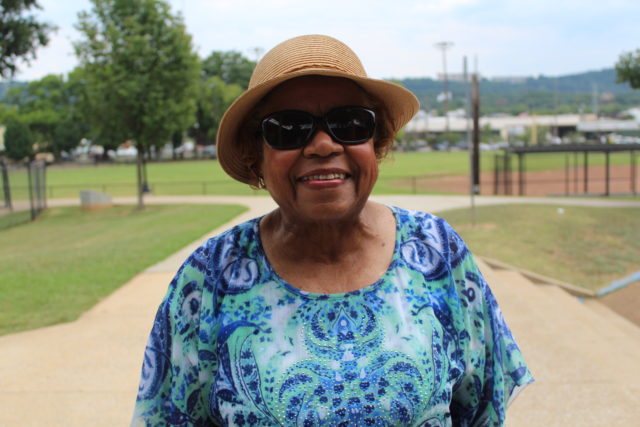By Denise Steward
For the Birmingham Times
When she was a child, Jefferson County Circuit Court Judge Carole Smitherman often spent her summers visiting the public library in Titusville at the corner of Sixth Avenue and Center Street. That experience opened her eyes to a new world.
“The librarian would tell us, ‘You don’t have to take a vacation this summer. We’ll travel to different places through books,’ so I knew there was more for me to see and do beyond Titusville,” said Smitherman, who attended Spelman College in Atlanta, Ga., after high school.
After graduating from college, she went on to law school and passed the bar before venturing into the political and legal worlds.
Titusville, a neighborhood nestled between the University of Alabama (UAB) to the east and Elmwood Cemetery to the west, launched the careers of politicians, college presidents, prize-winning journalists, and international bankers.
There’s no official count or list of successful Titusville natives, but among them are former Birmingham mayors William A. Bell Sr. and Larry Langford; Mary K. Bush, an international finance expert and former head of the Federal Home Loan Bank System; Birmingham civic leader Odessa Woolfolk; Freeman Hrabowski, renowned educator and president of the University of Maryland, Baltimore County; Harold Jackson, a Pulitzer Prize winner and former editorial page editor of the Philadelphia Inquirer; Cheryl McCarthy, an award-winning syndicated journalist; African American architect Wallace Rayfield, who designed the Sixteenth Street Baptist Church in downtown Birmingham; and former U.S. Secretary of State Condoleezza Rice.
Titusville was one of the first neighborhoods in Birmingham where African Americans were allowed to own residential and commercial property, and those who grew up in the early days of the historic community say the institutions in the neighborhood made a difference—the library, schools, and churches were at the top of the list.
Freeman Hrabowski
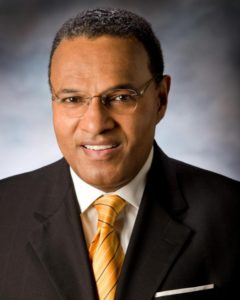 University of Maryland, Baltimore County, President Freeman Hrabowski was named one of the World’s Most Influential People by Time magazine in 2012. A few years earlier, that same magazine listed him as one of the nation’s Top 10 College Presidents. Hrabowski was jailed for five days during the 1963 Children’s March for Civil Rights. As a child, he watched role models in Birmingham’s schools and churches, and throughout his neighborhood, and they taught him key lessons that helped propel him to success.
University of Maryland, Baltimore County, President Freeman Hrabowski was named one of the World’s Most Influential People by Time magazine in 2012. A few years earlier, that same magazine listed him as one of the nation’s Top 10 College Presidents. Hrabowski was jailed for five days during the 1963 Children’s March for Civil Rights. As a child, he watched role models in Birmingham’s schools and churches, and throughout his neighborhood, and they taught him key lessons that helped propel him to success.
In an interview with the CBS television network’s news program “60 Minutes,” Hrabowski explained that in his community there was a balance between being nurtured and doing hard work: “I don’t care how smart you are,” he said. “Nothing takes the place of hard work.”
Harold Jackson
Journalist Harold Jackson also saw examples of hard work in Titusville.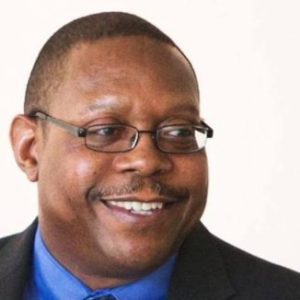
“I grew up in Loveman Village, and I walked to Center Street School every day,” he said. “We were in close proximity to successful people. On my way to school, I saw doctors, lawyers, teachers, and working-class people. They all spoke to us and encouraged us.”
Jackson attended the all-black Ullman High School for three years, until it closed following integration in the 1960s, and graduated from Ramsay High School. He went on to attend Baker University in Kansas. When he returned to Birmingham in 1975 to work for the Birmingham Post Herald newspaper, he moved back to Loveman Village with his mother for a couple of years.
“No one ever told us we could not do anything, and we never thought of ourselves as victims,” Jackson said.
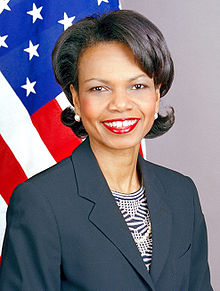 Condoleezza Rice
Condoleezza Rice
Former U.S. Secretary of State Condoleeza Rice lived in Titusville until she was 12 years old. During an interview for a Public Broadcasting System (PBS) program, she talked about how the community gave her a foundation in the midst of segregation: “We were still being told, ‘America is yours, and you can succeed,’” she said.
Rice’s father was pastor of Westminster Presbyterian Church. He also was a coach and counselor at Ullman High School, where many Titusville residents said they received nurturing and an extra nudge from their teachers and the principal.
Odessa Woolfolk
Birmingham civic leader Odessa Woolfolk was one of Titusville’s nurturing teachers. She grew up in the community and attended Washington Elementary School, Ullman High 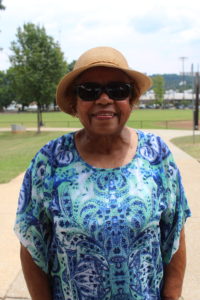 School, and A.H. Parker High School. She graduated from Talladega College and returned to Ullman to teach government.
School, and A.H. Parker High School. She graduated from Talladega College and returned to Ullman to teach government.
She was a young teacher in the 1960s, when some of her students were arrested for participating in the children’s marches. She also was teaching government when President John F. Kennedy was assassinated in 1963. Back then, teachers were an integral part of the total community, Woolfolk said. Many of the children from Titusville attended Ullman, where all students were encouraged to achieve at the highest level under the leadership of Principal George Crenshaw Bell.
“Titusville was a cohesive community,” Woolfolk said, adding that teachers were connected with parents, and there was also support from the churches.
William Bell
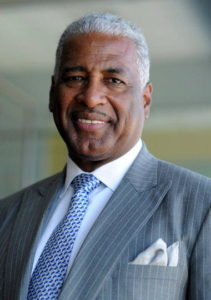 Former Birmingham Mayor William Bell said community connections and observations in Titusville led him to think about community service later in life. Bell spent most of his early years on Fifth Avenue Southwest with his parents and in Loveman Village with his great-grandmother. During his childhood, the streets of Titusville were not paved, and he recalled his father and several other adults getting together and gathering petitions to take to City Hall.
Former Birmingham Mayor William Bell said community connections and observations in Titusville led him to think about community service later in life. Bell spent most of his early years on Fifth Avenue Southwest with his parents and in Loveman Village with his great-grandmother. During his childhood, the streets of Titusville were not paved, and he recalled his father and several other adults getting together and gathering petitions to take to City Hall.
“This was at a time when black people did not go to City Hall and the government usually did not respond to the requests of African Americans,” Bell said.
This time there was a response, and the streets of Titusville were paved: “That experience showed me that things can happen when people petition their government,” he said. “And it stuck with me.”
Bell attended Titusville’s Immaculata High School, a Catholic that closed before the start of his senior year, and graduated from John Carroll Catholic High School. Still, some experiences at Immaculata planted seeds that would grow into his future career.
“Father Farrell, the principal, would not allow us to leave school to participate in the marches, and many of us were upset,” Bell said. “He told us change would come to Birmingham, and his goal was to help prepare us to be part of that change.”
Carole Smitherman
Jefferson County Circuit Court Judge Carole Smitherman said events during the Civil 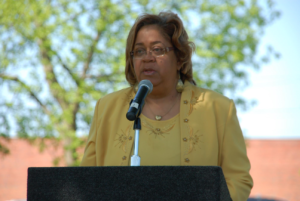 Rights movement inspired her, as well. She watched as the men of Titusville worked together and formed watch groups to protect the neighborhood. She recalled living a good life in Titusville, but it was rattled by bombings, marches, and injustices.
Rights movement inspired her, as well. She watched as the men of Titusville worked together and formed watch groups to protect the neighborhood. She recalled living a good life in Titusville, but it was rattled by bombings, marches, and injustices.
“As a child, I always knew I wanted to do something for our community and the city,” Smitherman said. “I knew I wanted to do something to ensure justice.”
To read more stories about the redevelopment in Titusville, click one of the links below
Rebuilding Titusville Community with $300M in Investments
Who Are Names Behind Some Titusville’s Biggest Developments
‘It will be great to not see the blight’ — Residents On Changes in Their Area

